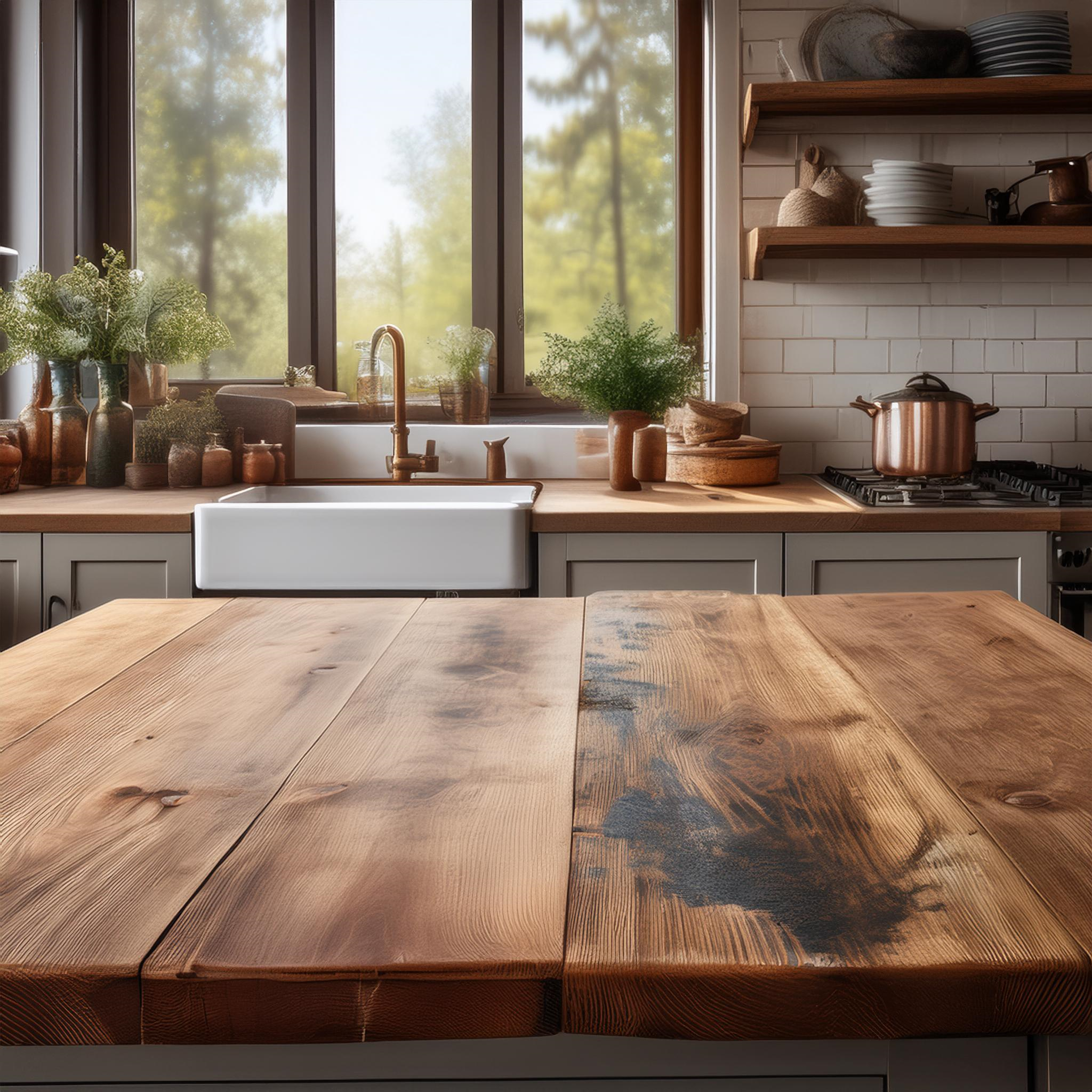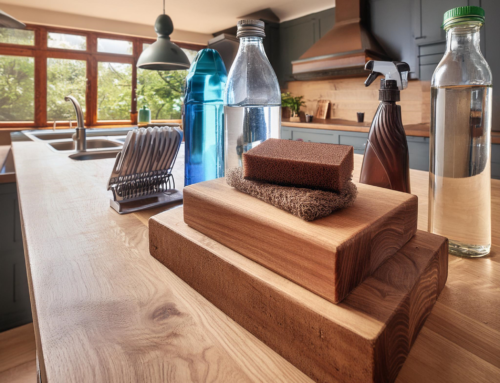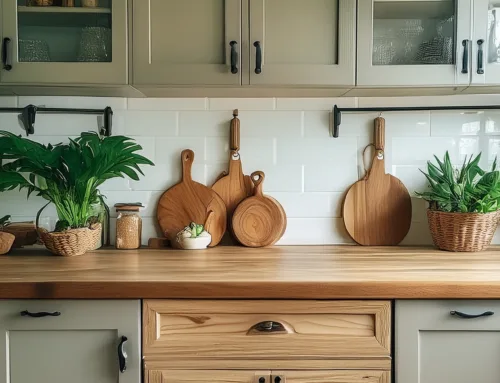Butcher block countertops have become a top choice for many homeowners due to their versatility and rustic charm. They seamlessly fit into a range of kitchen styles, from modern to farmhouse. However, these countertops come with their own set of benefits and drawbacks. Here’s a detailed look at the top five pros and cons of butcher block countertops.
Pros of Butcher Block Countertops
- Versatile Design Options: Butcher block countertops come in a range of wood types and finishes, including maple, cherry, oak, and exotic woods like teak and zebrawood. You can choose from edge grain, end grain, and blended grain styles, allowing you to tailor the look to your kitchen’s design.
- Cost-Effective: Butcher block countertops offer a budget-friendly alternative to high-end materials like natural stone. While they cost more than laminate, they typically range from $30 to $40 per square foot, providing excellent value for the quality you receive.
- Durable and Long-Lasting: With proper care, butcher block countertops can last around 20 years, comparable to granite. The natural antibacterial properties of wood, combined with the ability to sand and reseal the surface, contribute to their longevity.
- Easy Cleaning and Maintenance: Daily maintenance is straightforward with just mild dish soap and water. For deeper cleaning, vinegar works well due to its natural antibacterial properties. Regular oiling keeps the wood conditioned and moisture-resistant, making maintenance simple.
- Refinishing Simplicity: Butcher block countertops can be easily refreshed. You can sand out nicks, scratches, and stains without needing professional help, making surface upkeep more manageable than with many other materials.
Cons of Butcher Block Countertops
- Prone to Stains and Scratches: Butcher block surfaces can easily scratch, especially if used for cutting without a cutting board. Stains must be addressed quickly to prevent permanent damage. The wood needs sealing upon installation and regular maintenance to maintain its appearance.
- Sensitive to Moisture: Wood reacts to changes in moisture and temperature, which can impact the stability and look of butcher block countertops. Regular oiling is essential to prevent drying out and cracking.
- Heat Sensitivity: Direct contact with hot pots or pans can scorch the wood, requiring refinishing to remove burn marks. Trivets and hot pads become essential accessories in kitchens with butcher block countertops to prevent damage.
- Visible Dust and Crumbs: Butcher block surfaces show dust, crumbs, and smudges more than darker or textured surfaces, necessitating frequent cleaning to keep them looking pristine.
- Heavy Periodic Maintenance: While daily care is simple, butcher block countertops require periodic resurfacing and resealing to maintain their look and functionality. This ongoing upkeep can be a downside for those preferring low-maintenance options.
Conclusion
Butcher block countertops add a warm, inviting touch to your kitchen, offering affordability, durability, and design flexibility. However, they demand regular maintenance to keep them in excellent condition. Understanding these pros and cons will help you decide if butcher block is the right fit for your kitchen renovation.




Leave A Comment